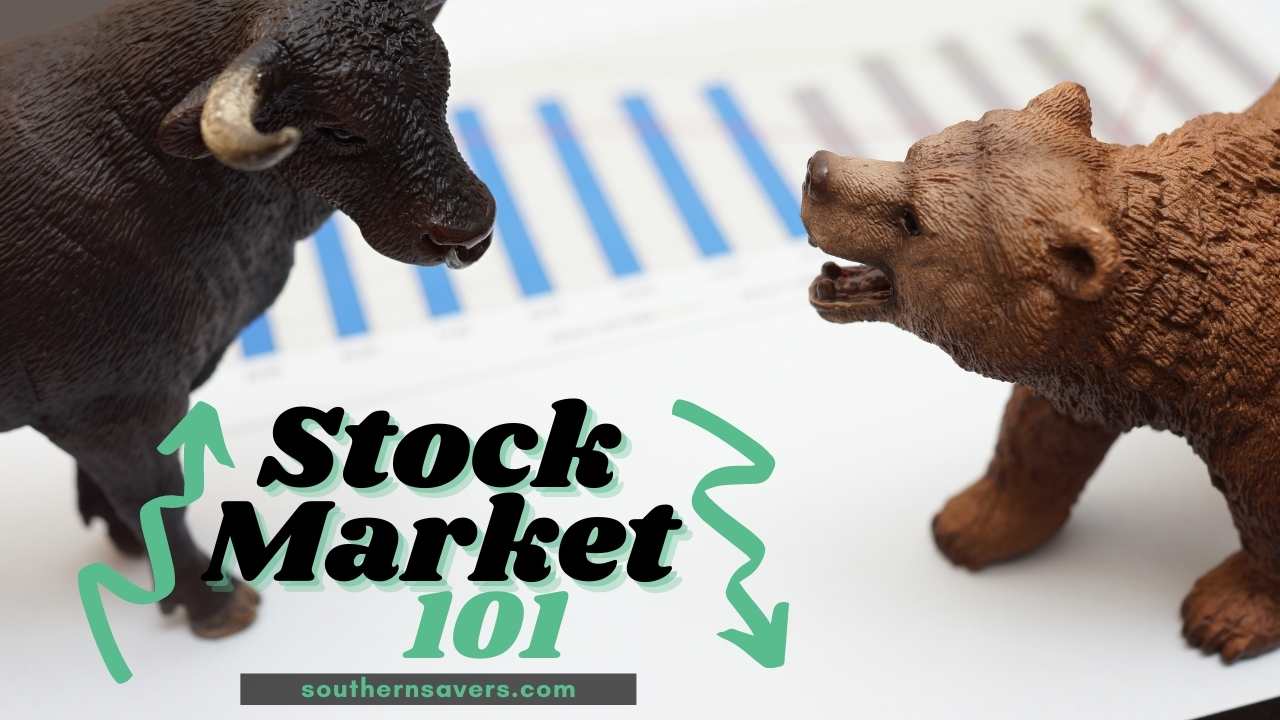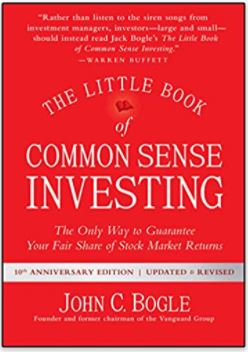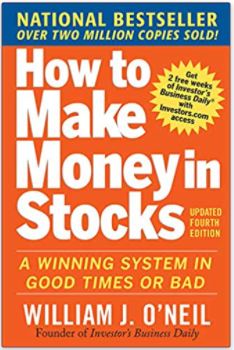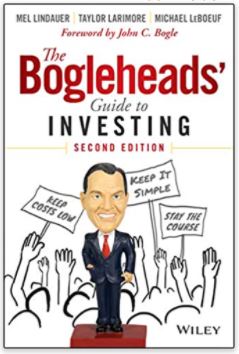This post may contain affiliate links. Read our disclosure here.

Of all the categories of money management, you’ve probably got a pretty good hold on things. Income? Check! Making a budget? Check! Savings? Check! You might even feel pretty comfortable with insurance, 401k, retirement and basic investing. But that last one – investing – can feel a little eluding. Investments can come in many shapes and forms, but one common investment is in the stock market.
For a lot of us, the “Stock Market” conjures images of crowded rooms of sweaty people, sleeves rolled up, staring at computer screens and yelling at each other. And for a lot of us, that’s where our knowledge stops. It’s complicated and we think it doesn’t have much impact on our day-to-day lives. You might think, “that’s something that someone else does, not me.” You might even think that the stock market is only for rich people.
But what is the stock market? How does it affect you? Let’s break it down in the most basic terms.
Just as a disclaimer, I’m not a financial planner. I’m just someone who enjoys managing my own personal finances and this post is meant for info, not direct investing advice.
What is the Stock Market?
Just like you use the corner store to buy food and goods, you can use the stock market to buy investments. Most of the time, these investments are in the form of stocks. Stocks are shares of ownership in a company. If you have a share of stock in Amazon, you are a part-owner (even a small one) of Amazon. Just about anyone can buy and own stocks in the stock market.
The stock market exchange (such as the New York Stock Exchange) is a listing of all the companies that can be bought and sold to the public in that particular market.
Where is the stock market?
There are several different stock markets. The world’s biggest stock market is the New York Stock Exchange (NYSE), which is in New York. Other large stock markets are the Nasdaq, which is also in New York, the Nikkei in Japan, the London Stock Exchange in the United Kingdom and the Shanghai Stock Exchange (SSEC) in China.
What does it mean when the stock market is up or down?
Generally when you look at the news and see the stock market is up or down, what you’re seeing is a representation of companies (a sampling of stocks) in that particular stock exchange is up or down. Up or down means the sample of companies is selling higher or lower than the previous day.
Is it risky to buy and sell stocks?
There is a risk with any stock investment, however there are ways to reduce your risk. Let’s cover the main types of stocks and help break down risk levels.
Single Stocks – doesn’t mean that you bought one (though you can). This is when you buy stocks in a particular company. You buy 12 shares of Home Depot, 1 share of Tesla… these are all “single stocks” and they are a fairly high risk level. You need to research the company, also look their stock performance recently and over the last five years. Google the companies stock symbol and this will come up automatically.
Mutual Funds – Rather than investing in one particular stocks, buying shares in a mutual fund helps to spread out your money across many companies. You don’t personally own specific company stocks, instead you own a share of the pool of stocks the fund buys. You can probably guess… this is a lot less risk then single stocks because all of your money isn’t in one proverbial basket.
There are a few different types of Mutual Funds: managed, unmanaged, front load and rear load. In general those terms will relate to additional costs that you will pay. You will see an expense ratio and any load fees mentioned on the funds information page. Generally look for lower fees if you can, but keep in mind some very great performing funds may have slightly higher fees.
Exchange Traded Fund (ETF) – These are very similar to mutual funds, however these funds are actually traded on the stock market just like ordinary stocks. This is a collection of stocks that is usually tracking a specific index (like the S&P 500) or market. For example I have a few shares in a Clean Energy ETF. They buy various stocks in clean energy companies. Just like Mutual Funds these are lower risk because your money is more diversified than single stocks. ETF’s tend to have lower management costs than mutual funds.
How do you buy stocks?
Buying stocks is significantly easier than it used to be. You can go through free apps like Robinhood and make your own purchases (I use this). You’ll pay no fees for your Robinhood account and no fees for anything you buy or sell. You can also open accounts with Schwab, and other large brokers. Most don’t require a certain balance and also don’t charge for most trades.
One option that doesn’t require you to actually research or buy the stocks is Acorns. They charge $3 a month, but handle your account portfolio for you. I also have an Acorns account that has made a steady 8-9% in gains over the last year. You can also withdraw money at any time. We use this as a savings account basically and remove money as needed for large yearly bills or emergency funds.
How does the stock market affect me?
Everything you do financially (unless you live off the grid), is affected in some way by the stock market. If you have a retirement or 401k, that money is grown by returns on the stock market. If you buy insurance, the rates are affected by the stock market because insurance companies partially invest customer’s premiums.
What you pay for college is affected because college endowments are invested in the stock market. What you pay for gas is affected by how it’s sold on the commodities exchange. The price you pay for a plane ticket is largely based on fuel prices. The list goes on and on, but that bottom line is the stock market affects most of us significantly.
Should I invest in the stock market?
The decision to invest in the stock market is entirely personal. First, you need to make sure your daily needs are taken care of. If you don’t have a stable place to live or have large amounts of debt, it’s probably not the best time to invest in the stock market. Second, you need to define your goals. Do you want a hobby or are you looking to fund your retirement?
I would recommend funding your retirement accounts first before you invest in general brokerage accounts. Retirement accounts offer tax savings that helps your money be worth even more! Make sure you are making the most of those accounts!
After you have fully funded retirement for the year, opening a general account to buy stocks can be a great idea.
What Stocks Should I Buy?
Generally people recommend that you invest in what you know. Don’t get wrapped up in random companies you have never heard of. Many investment apps and companies will let you create a “Watch list.” Use this feature!! As you think of companies you can search for them and add them to your watch list. Keep an eye on them for a bit and see how they are performing day by day.
You also want to diversify your holdings. This means don’t sink all your money into just one or two companies. Many financial advisors would say to hold different types of companies not just different stocks. They use words like Small Cap and Large Cap, that just means companies with a smaller worth and large worth. This is the different between Rite Aid and P&G. Small Caps actually can have better growth potential over large caps, but they are a tad riskier. Buying a bit of both though helps balance things out.
Remember, you don’t need to find the next new Amazon to make money. Think long term and look at companies that have a history of strong and solid growth. One of my best performing stocks has been Home Depot (HD), they aren’t new or super trendy but they are a company we all know of. I bought two shares my first day of having a Robinhood account (3+ years ago) and have earned over 30% on them!
One last tip that someone gave me when I started… you probably can’t afford a share of Apple or Tesla so look into companies that make parts for them! I used this advice and bought stock in Micron (MU) a few years ago. They make memory and semiconductor chips inside smartphones. So far that stock has doubled in price since I bought it!!
One Last Thought
Almost everything we do is financially is affected by the stock market. It’s confusing, yes, but is it worth trying to learn about? Absolutely! The world of stocks isn’t reserved just for rich, smart people in a high-rise office building somewhere. However, this post is just scratching the surface. If you’re ready to learn more, I’ve compiled a list of further reading below. Let’s explore this some more!
Further Reading:

The Little Book of Common Sense Investing by John C. Bogle

The Simple Path to Wealth by J.L. Collins

How to Make Money in Stocks by William O’Neil

The Bogleheads’ Guide to Investing by Taylor Larimore


